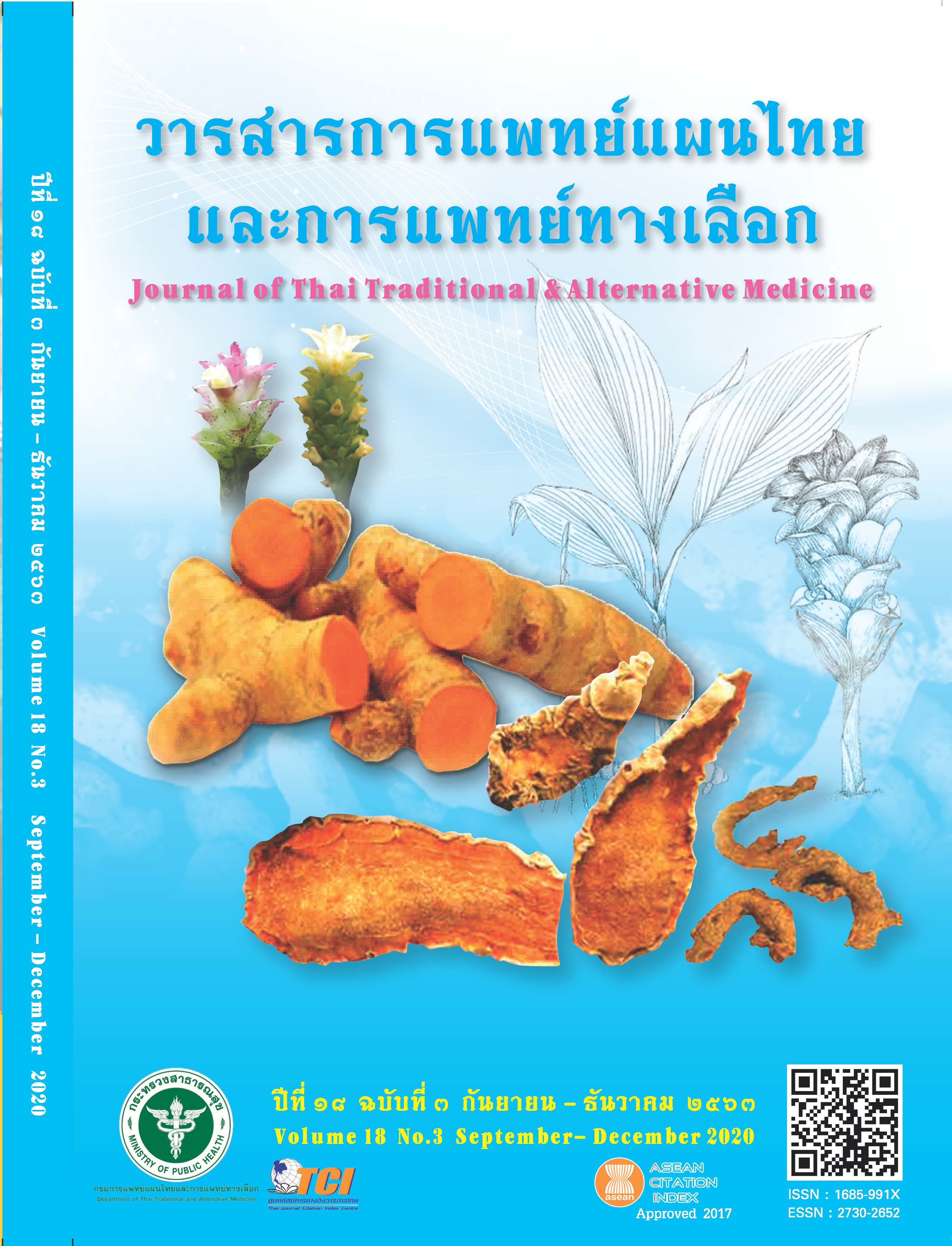Quality evaluation of the exsiccated alum
Main Article Content
Abstract
Alum, an elemental medicinal material popularly used in Thai traditional medicine, consists of two chemicals: potash alum and ammonium alum, both of which have astringent medical properties for topical and oral administrations. However, the alum that has been used in a certain Thai herbal preparation must be specially heated by the unique method called “Satu”. The aims of this study were to evaluate the quality of the alum exsiccated with the conventional method and to identify the type of alum salt. As a result of the chemical analysis, the exsiccated alum samples obtained from the market were ammonium alum. After heating or exsiccation, the amounts of ammonium salt, water-insoluble substances, alumina, iron, arsenic, copper, zinc and calcium in the exsiccated alum were larger than in the unexsiccated alum. The pH values of alum and exsiccated alum were 3.47 and 3.54, respectively. After exsiccation, the alum’s weight was lost by 53.65±0.55% (n=18). In conclusion, due to the loss of water during exsiccation, the amounts or proportions of mineral compounds especially iron in the exsiccated alum increased five-fold. The results have displayed the scientific evidence of the Thai traditional medicine knowledge in using exsiccated alum in Thai herbal preparations; and the “Satu” process has been practised in the herbal drug preparation. Additionally, the chemical properties of exsiccated alum available in the market are similar to those of raw alum, probably due incomplete heating or improper storage. Thus, it is suggested that exsiccated alum should be kept in a tightly closed container to protect against moisture.
Article Details
References
Department of Thai Traditional and Alternative Medicine, Ministry of Public Health. Monographs of Selected
Thai Materia Medica. Vol 2. Bangkok: Amarin Printing and Publishing Public Company Limited; 2015. p. 277-
(in Thai)
The Royal Society Dictionary B.E. 2554. [cited 2020 May 12]. Available from: http://www.royin.go.th/dictionary/
index.php
Department of Thai Traditional and Alternative Medicine, Ministry of Public Health. The Dictionary of Thai
Traditional Medicine Vocabulary (Royal Society). 4th ed. Nonthaburi: The Agricultural Cooperative Federation of
Thailand Limited; 2558. p. 435 (in Thai)
Department of Thai Traditional and Alternative Medicine, Ministry of Public Health. National Thai Traditional
medicine Formulary (2018 edition). Bangkok: Samcharoen Panich (Bangkok) Co., Ltd.; 2018. p. 210. (in Thai)
The Merck Index. 15th ed. Cambridge: The Royal Society of Chemistry; 2013. P. 61, 64.
Ministry of Industry. Thai Industrial Standard 165-2554. Aluminium sulphate, Potash Alum and Ammonium
Alum. [cited 2020 May 12]. Available from: http://www.fio.co.th/web/tisi_fio/fulltext/TIS165-2554.pdf
United States Pharmacopoeia. 43th ed. Rockville (MD): The United States Pharmacopeial Convention; 2020. P.
-6.
The Japanese Pharmacopoeia. 17th ed. The Ministry of Health, Labour and Welfare; 2016. p. 403.
Pharmacopoeia of the People’s Republic of China. Vol. 1. Beijing: China Medical Science Press; 2015. p. 29-30.
British Pharmacopoeia. London: The Stationary Office; 2019. p. I-118.


